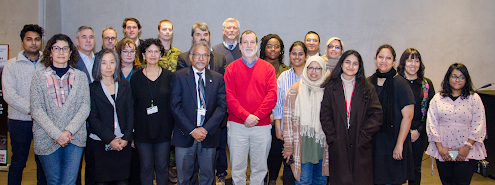What did I learn?
- Emergencies are rare for any individual but they are increasingly common collectively. Climate change is already fostering more and more floods, fires, and other extreme events. So, this is not just a thing that happens from time to time but is an every day thing now.
- The notion of the CAF as a last responder needs to die. Yes, the military wants to be called on only in the most extreme emergencies when no one else can do what they can do. But there are plenty of incentives for folks to ask for help and for the CAF to be unable to say no.
- That most of this stuff ends being led by the most local folks--that the feds don't take over but are there to supplement. Which means the military is following orders, not ordering people around.
- As always, prevention is the least expensive route but often there are not political incentives. It seems to me that the real opportunity to make changes to manage/mitigate is as the cycle goes from response to the emergency to recovery--that building back better is a thing. Rebuild out of harm's way, away from the flood plains, for example.
- As always, the Indigenous people are put into awful positions by the past and by the present. Limited infrastructure means they need assistance, but then they are seen as objects, those to be rescued, rather than agents with their own expertise and preferences. Evacuations need to be rethought--they are very disruptive physically, economically, culturally, mentally.
- Federalism in Canada continues to suck mightily. Some provinces understand that they need to build back better, so the Winnipeg floods didn't recur with the same level of damage. Others understand that they can save money by doing less preparation and then call the feds in when help is needed.
- There is a lot more work, coordination, planning, preparation going on in this area in between emergencies, that many bad storms and other events do get mitigated. But again, it is going to get much harder as storms and other conditions get more intense.
I was very pleased to see the CDSN idea work out here--that we had engaged people in different parts of government and society, there was a real exchange of information, the students were super engaged, and it is the start of a more comparative analytical conversation.
I also learned that Winnipeg is cold, full of friendly folks, and one can lose one's mittens in a cab and then get them back when one happens to take the same cab back to the airport.
 |
| So glad I could hang with Andrea Charron, who has done so much for the CDSN |



No comments:
Post a Comment